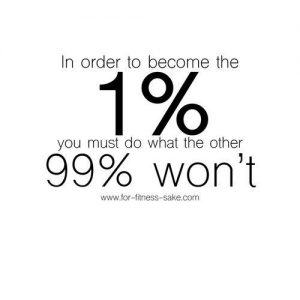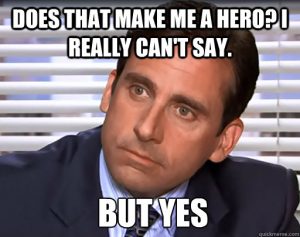I got off the phone with a good friend this morning. He was asking about D.C. Hopefuls and told me an all too common story. A few months back he met a young man through a friend. We’ll call the young man Tom. My friend spoke to Tom once and because Tom doesn’t understand networking months went by without my friend hearing from Tom. Mistake #1.
My friend reached out to Tom and told him about a paid internship in his office. Tom said he was interested but did nothing to follow up about it for two weeks. Didn’t send a resume or ask what he should do. Mistake #2
After two weeks my friend reached out to Tom and said “hey send me your resume if you are interested in the job.” Tom sent it promptly (which is good) but the resume was a mess. Mistake #3
My assumption is Tom was waiting for my friend to give him instructions on what to do. Tom should have responded “yes I’m interested what should I do? Do you need a resume?” Mistake #4
My friend offered edits and comments and sent it back to Tom. Tom then sent back the revised version ignoring 80% of my friend’s suggestions. Mistake #5
So now put yourself in my friend’s shoes…what would you do? 
Tom never made him feel valued. He didn’t follow up with him the first time, didn’t jump on an opportunity, and ignored his resume advice.
Now what Tom never knew was the circumstances around my friend knowing about the paid internship. My friend really only knew about this opening because his friend/co-worker was put in charge of the internship program. After Tom’s initial interest my friend told her that he was sending Tom’s resume as a way to give her a good candidate. Two weeks later (as Tom dragged his feet) she asked my friend “hey where is this Tom guy’s resume.” When he finally did submit Tom’s resume he had to explain to his friend/co-worker “sorry this took two weeks not sure why he took so long. Also I know this resume isn’t great I tried giving him edits.”
Are you shocked that she threw Tom’s resume in the trash? I’ve seen various versions of this story a few dozen times. Tom had no idea what was on the line for my friend. That his lack of professionalism and common decency was making my friend look bad at work and feel totally unvalued.
The worst part is Tom is sitting back thinking he has this great inside lead. My friend isn’t going to sit him down and explain how he messed up. He isn’t going to help him learn from this mistake…why would he? My friend isn’t his dad, his professor, or career counselor. This was a partnership (although Tom likely didn’t it see it that way). Tom would have got the internship and my friend would have helped a co-worker in order to build political capital in his organization. Tom was a bad partner so my friend doesn’t owe him advice, lessons, or guidance.
Don’t be Tom!!!! You may be making all sorts of mistakes, although I hope not this bad! One of the great things about D.C. Hopefuls Fellowship is you have the ability to interact with me via the group or private one-on-one phone calls. I and others in the group can be that person to tell you the mistakes you are making and through D.C. Boot Camp help you to know better than to make them in the first place!!!
Stay Steadfast,
Tommy Pevehouse


 Success is a curse if not properly earned. People who earn massive amounts of wealth by starting a business or moving up the company latter get there through hard work and being smart. They know how they became rich and rarely go back to being middle class. The same principal is true for applying to jobs…I know that sounds crazy but hear me out.
Success is a curse if not properly earned. People who earn massive amounts of wealth by starting a business or moving up the company latter get there through hard work and being smart. They know how they became rich and rarely go back to being middle class. The same principal is true for applying to jobs…I know that sounds crazy but hear me out.
 It really is the 1% of the 1% of young people who are willing to admit what they don’t know, humble themselves, and learn the necessary skills to reach their dreams the right way. The right way doesn’t usually have immediate payoffs but always ends up being far easier and much less painful than sheer will of ignorant force (aka me for the first 5 years of my career).
It really is the 1% of the 1% of young people who are willing to admit what they don’t know, humble themselves, and learn the necessary skills to reach their dreams the right way. The right way doesn’t usually have immediate payoffs but always ends up being far easier and much less painful than sheer will of ignorant force (aka me for the first 5 years of my career). Everyone likes to feel like a hero and you can use that! When you are networking it is so important to take people’s advice and update them on how it played out because it makes them feel like your success or just general journey is in part because of them. Each new contact, interview, or lead you get try to make it about them if you can (see
Everyone likes to feel like a hero and you can use that! When you are networking it is so important to take people’s advice and update them on how it played out because it makes them feel like your success or just general journey is in part because of them. Each new contact, interview, or lead you get try to make it about them if you can (see